Uncategorized
Will Trump Weaponize the FCC to Crack Down on Media Outlets He Doesn’t Like?
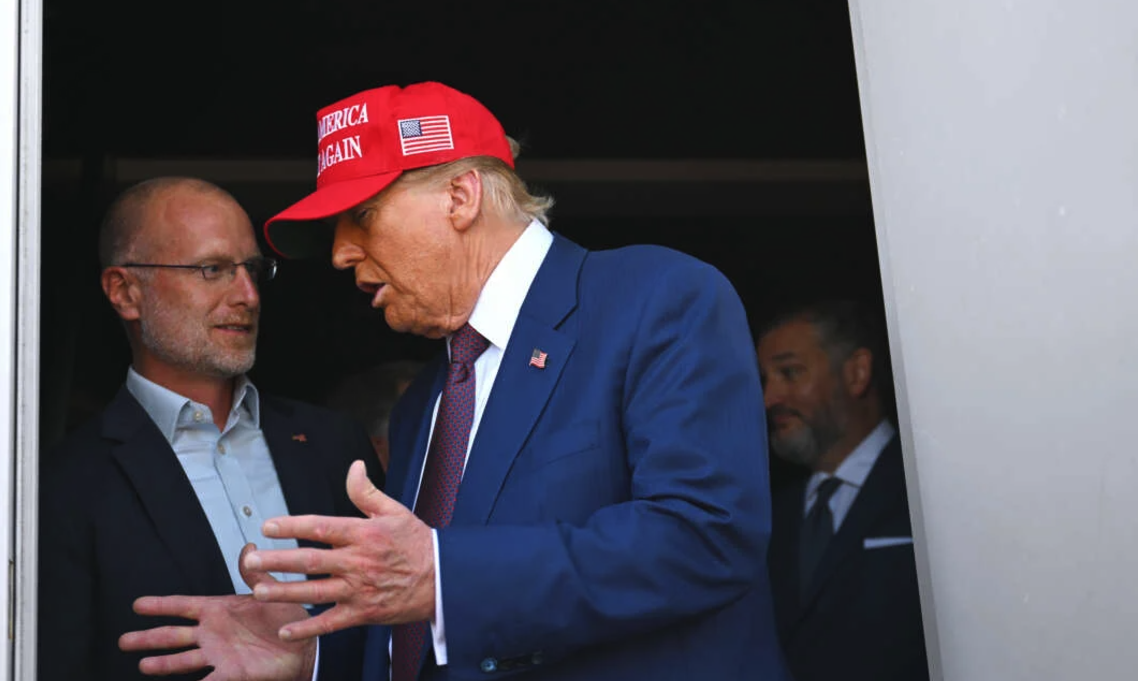
Trump could use the Federal Communications Commission to carry out his fantasies of revenge against the media.
Donald Trump has spent years delegitimizing much of the media in the eyes of his followers. Now, he is moving beyond his rhetoric about “enemies of the people” and “the enemy from within” to working out ways to actually intimidate big media companies into toeing the line — and it appears he may even try to use the financial might of billionaire allies such as Elon Musk to buy up oppositional media entities such as MSNBC.
Trump has urged Republicans in Congress to “kill” the PRESS Act, which essentially expands press protections against government spying and the seizure of reporting materials.
On the campaign trail, Trump talked of jailing hostile media figures and yanking the broadcasting licenses from networks whose coverage he disapproves of, and has even joked about journalists being shot and killed. He has accused NBC of “treason” and has said that CBS should lose its broadcasting license for its allegedly softball interview of Kamala Harris, and that ABC should lose its license for fact-checking him during the presidential debate in September.
Trump has also repeatedly sued media outlets for coverage he regards as unfavorable. And at his “Department of Government Efficiency,” Elon Musk has made clear his desire to slash more than half a billion dollars from the Corporation for Public Broadcasting, which would have devasting consequences for local public television and radio outlets. Musk has also taken to X to urge that National Public Radio be entirely defunded.
In 2023, Trump announced that he would bring the Federal Communications Commission (FCC) under direct “presidential authority,” surely one of the most authoritarian of his many dictatorial pronouncements.
Now that he stands on the cusp of power again, Trump is working to institutionalize these vengeful impulses. Namely, he seems set on using the powers of the FCC, under his nominee Brendan Carr — who wrote the Project 2025 chapter on the commission — to go after what he sees as a “censorship” regime by big tech and by media outlets that he accuses of freezing out conservative voices.
Carr, who is currently an FCC commissioner, is an outspoken advocate of forcing social media companies to strip down internal rules against the posting of misinformation — despite the fact the Supreme Court has ruled that it is within the free speech rights of these private companies to moderate content as they see fit. And while the FCC has no direct authority to force social media companies to toe the party line, it can use the full intimidatory force of the federal government to create a hostile climate for those companies if they don’t voluntarily change their ways.
Carr is one of only several high-profile Project 2025 authors to make their way into Trump’s inner circle as he constructs his new administration. The project’s intellectual father, Russell Vought, is slated to head the Office of Management and Budget, and Axios has identified several other key administration figures who also have ties to the right-wing policy blueprint.
So much for Trump’s claim, during the campaign, that he wasn’t really familiar with Project 2025 and certainly wasn’t about to implement all of their hard right ideas. Turns out, come the new year, men such as Carr will indeed be playing a central role in the administration’s war on what they call the “deep state,” of which they view liberal media outlets as a key part.
On the campaign trail, Trump talked of jailing hostile media figures and yanking the broadcasting licenses from networks whose coverage he disapproves of.
Where Carr will likely have the most power to threaten media that challenge the Trump administration is in the world of radio and television broadcasting. The FCC’s arsenal of licensing powers gives a rogue administration a powerful structural advantage if it really does go to war against the notion of a free press. The fear here is that the Trump administration might seek to use the emergency powers contained within the 1934 Communications Act and the 1996 Telecommunications Act — both of which give the president extraordinary powers to shut down communications systems in the event of an “emergency.”
Given the Supreme Court’s ruling that a president is immune from prosecution for what would otherwise be illegal acts if he can argue they were carried out in his presidential capacity, there’s a real risk that Trump might invoke emergency powers, on the flimsiest of pretexts, to shut down broadcasters whose tone has rubbed him the wrong way.
Instead of serving as a voice of moderation, Brendon Carr has amplified Trump’s assaults on the broadcasting networks, invoking the specter that the FCC might seek to yank their licenses. Even if it doesn’t go that far, it can refuse to sign off on paperwork needed for parent companies to be able to sell off the broadcast networks, or their local affiliates, that they own — thus holding media companies’ finances hostage to the FCC leadership’s whim.
At the same time, Carr has made it clear that he wants to expand, and speed up the delivery of, subsidies to Elon Musk’s Starlink satellite network, accusing the Biden administration of “regulatory harassment” of Musk and his companies.
All of this solidifies the sense of self-dealing across government agencies and personnel in the Trump era, and the fear that a crisis is upon the United States in which the leading agencies of the federal government will become little more than enforcers acting on behalf of the personal and partisan interests of the president.
It’s unclear whether all of Carr’s wish list will come to fruition. Even with the legal system swinging rightward, his more outlandish actions are likely to run into headwinds in the courts. Moreover, as of now Republicans are outnumbered by Democrats 3-2 on the FCC board. But that balance will shift over the coming years, and when it does, Carr will be on hand to dole out as much pain as possible to media and internet companies that don’t toe Trump’s line.
Whether the broadcasting networks, social media companies and other targets of Trump’s ire have the stamina — and the guts — to stand up to the president is an open question. Indeed, CNN recently reported a “chilling effect” among television industry executives.
If broadcasters, print outlets and publishers tone down their critique of Trump’s actions in order to remain in his good books — or to avoid the huge costs of having to defend themselves legally in the face of a torrent of lawsuits directed their way — Trump and Carr’s mere threats might be enough to tame much of the free press even without the fire-and-brimstone punishments that both men have promised to dole out.
Uncategorized
Just in! Biden White House considering preemptive pardons for Trump’s perceived enemies
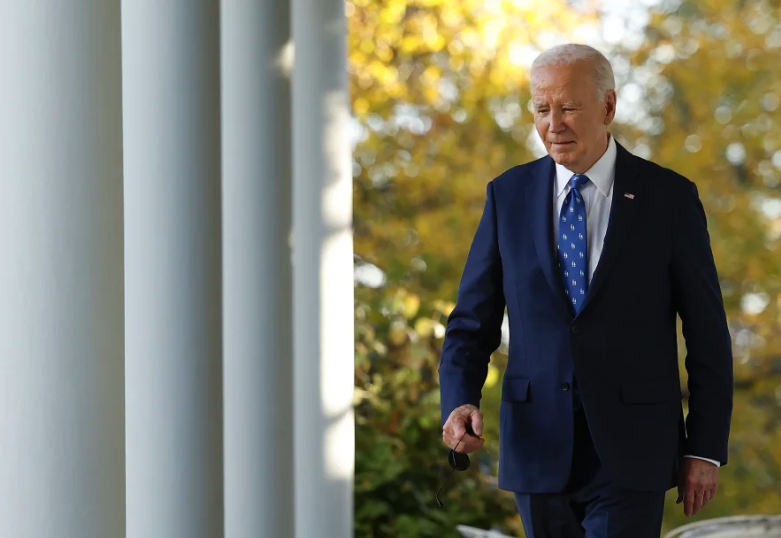
Senior Biden White House aides, administration officials and prominent defense attorneys in Washington, DC, are discussing potential preemptive pardons or legal aid for people who might be targeted for prosecution by President-elect Donald Trump after he retakes power, multiple sources told CNN.
Reports of these conversations have captured the attention of Trump’s legal advisers, who, according to a source familiar with their strategy, believe President Joe Biden would be setting a new precedent in terms of the scope of pardons that they could take advantage of, down the line, to help their own allies.
Biden’s senior aides inside the White House have been deliberating for weeks about the possibility of issuing preemptive pardons, according to the sources familiar with the discussions. The move, which would cover people who haven’t ever been formally accused of any crimes, would be an extraordinary step and shows the grave concerns many Democrats have that Trump will prosecute a range of figures that he considers to be his enemies.
Trump has publicly called for the jailing of people like Republican former Rep. Liz Cheney, who served as vice chair of the House select committee that investigated the January 6, 2021, US Capitol attack, as well as special counsel Jack Smith, who brought federal criminal cases against Trump.
One former senior White House official said aides inside the White House and across various federal agencies are intensely worried about the possibility that the incoming Trump administration will prosecute anyone deemed as having antagonized the president-elect.
Additionally, several prominent white-collar lawyers across Washington have fielded calls in recent weeks from government officials, including investigators from Smith’s office, who are concerned they could be targeted by the incoming Trump administration.
Biden and his top aides view Trump’s public threats – particularly against current and former government officials – as unprecedented, and some believe that it would be reckless and irresponsible for Biden to leave office without granting preemptive pardons.
“You have got (an incoming) president that has basically said he’s going to go after all these people,” a source familiar with the discussions told CNN. “Why not do it?”
A White House spokesperson declined to comment.
Possible legal defense funds
According to Politico, which first reported on the internal debate, the discussions are being led by White House counsel Ed Siskel and other senior aides to the president, including chief of staff Jeff Zients.
The former White House official who spoke to CNN, who is intimately familiar with the workings of the White House counsel’s office, said it would be typical for Siskel and his team to first put together a detailed memo to be presented to Biden.
In that situation, that memo would include a list of individuals that Biden might consider pardoning preemptively, the context about any prior legal precedent, and a discussion of the wide range of potential ramifications if the president does move forward with these pardons.
The calls among worried government officials and top white-collar defense lawyers in DC, appear, at this point, to be precautionary. One private attorney told CNN that they’re “feeling out what they should do if something happens” once Trump takes over.
A spokesman for Smith’s special counsel office declined to comment on whether he would seek a preemptive pardon. CNN previously reported that Smith intends to step down before Trump takes office, instead of being fired, as the president-elect has pledged to do.
As Democrats brace for the political and legal scrutiny that could come from the new president, his administration, and the GOP-run Congress, one significant concern for many current and former administration officials is the possibility of mounting legal bills.
Multiple sources said there have been discussions about setting up legal funds to help support those who would not be able to afford thousands of dollars in lawyers’ fees.
Some of the private practice bar have discussed if influential white-collar practices could work together to help career Justice Department workers – and others who are exiting the federal workforce – to possibly provide them low-cost or pro-bono representation.
And at least one progressive group is working on assembling resources – such as lawyers, security experts and communications professionals – who could help government officials placed under investigation during the Trump years, some of the people familiar with the discussions said.
Emboldening Trump?
A source familiar with Trump legal strategy says his team believes Biden’s pardon of his son Hunter has set a new precedent for presidents to issue expansive pardons to their children – and this could be something Trump chooses to do before he leaves office.
The Hunter Biden pardon was notable for not only forgiving the crimes in his tax and gun indictments, but also for protecting him from being charged with any offense he “may have committed or taken part in” between January 2014 and December 2024.
There’s also the president’s brother James Biden, who hasn’t faced charges but whose overseas business dealings attracted intense scrutiny from congressional Republicans. Several GOP-run House committees urged the Justice Department to prosecute James Biden in connection with lying to Congress. (He denies all wrongdoing and declined to comment for this story.)
If Biden goes even further and grants preemptive pardons to an expansive list of individuals, Trump’s team believes that move would also create a new precedent and give Trump political cover to do the same for his allies, according to the source.
CNN reported in 2021 that before Trump left office during his first term, he considered – but did not grant – preemptive pardons for family members, political allies, his personal attorneys, and even for himself, including in the wake of the January 6 insurrection.
Attorneys across the political spectrum have raised concerns about blanket pardons to protect against future investigations or prosecution.
“It’s just such a different use of the pardon power,” said Neil Eggleston, former White House counsel to President Barack Obama. “You would create the beginning of a tit for tat where, when any administration is over, you just pardon everybody.”
Presidential pardons protect against federal Justice Department prosecutions, but do not shield individuals from state-level criminal cases or congressional investigations.
While Trump has publicly said he wants his Justice Department to go after his perceived adversaries, the system has built-in checks against abuses of power, such as judges that can throw out charges, grand juries that can refuse to indict, juries that can return “not guilty” verdicts, and other safeguards to protect against purely vindictive prosecutions.
Some prominent former Justice Department officials have said they wouldn’t want a preemptive pardon from Biden, because it might imply they’re conceding there was wrongdoing during their work for the federal government, according to a source familiar with their thinking.
Trump’s ever-growing enemies list
Trump has a well-documented history of pushing – both publicly and privately – for investigations and prosecutions of his political opponents, almost always based on unproven, baseless and conspiracy-tinged allegations about their supposed activities.
Many of his recent threats targeted prosecutors who charged him with crimes: Smith, Manhattan District Attorney Alvin Bragg and Fulton County District Attorney Fani Willis.
He has publicly called for investigations into prominent lawmakers: Cheney and the rest of the January 6 committee members (who he said “should go to jail”), former House Speaker Nancy Pelosi (for her supposed “ties to Russia”), Senator-elect Adam Schiff (for his role in the Trump-Ukraine impeachment saga) and a host of other Democratic lawmakers.
Still, members of Congress have immunity from the Constitution’s “speech or debate clause” that offers such broad protections for their legislative work that even members of the defunct January 6 committee would be unlikely to take seriously any legal threats.
Trump also has said Vice President Kamala Harris “should be … prosecuted” for letting undocumented immigrants into the country. After the election, Trump called for probes of Iowa pollster Ann Selzer (for “election fraud,” by releasing a poll with Harris ahead), and into stock traders who spread “illegal rumors” about his investment in Truth Social.
During his first term, some of Trump’s calls for probes were apparently heeded, leading to investigations into 2016 Democratic nominee Hillary Clinton, former FBI director James Comey, and former FBI deputy director Andy McCabe, now a CNN contributor.
None of them were ever charged with crimes.
Some of Trump’s longtime foes who worked on the Russia probe around the 2016 election may not have much legal exposure now because their government service ended so long ago and statutes of limitations may have lapsed.
There are plenty of other figures that, despite Trump’s calls, weren’t investigated during his first term, but could be scrutinized when he returns to power: former President Barack Obama (for “treason”), former Secretary of State John Kerry (for his contacts with Iran), and even MSNBC host Joe Scarborough (based on a conspiracy theory that he was possibly able to “get away with murder” after one of his interns died in 2001).
Attorneys who might defend top targets have their own fears, too. Representing Trump administration and political officials had largely gone out of fashion for large DC defense firms in recent years, with few willing to take on clients, especially after January 6.
The view at Washington’s elite firms – which tend to lean liberal – may be shifting back toward getting involved, but it’s still not clear how much pushback the next Trump presidency may receive from the capital’s powerful law firms, several prominent attorneys told CNN this week.
“There could well be a fear now by law firm leaders that if we take on those cases, could we ourselves be targeted?”one white-collar lawyer who regularly represents high-profile political figures told CNN on Thursday.
Focus on political pardons angers activists
Some liberal-leaning and criminal justice reform groups are pushing Biden to focus his final clemency efforts less on family members, political allies or Trump’s potential targets – and instead to help incarcerated Americans whom they believe deserve relief.
One group, FWD.us, is airing TV ads in the Washington, DC, market, pressing Biden to “give people a second chance,” by granting clemency to Americans with “outdated” prison sentences that they argue would be shorter under today’s laws and policies.
They’ve pointed to Obama’s record-setting commutations as a model. He reduced the punishments of more than 1,300 convicts, including 500 people serving life sentences.
“The thousands of people serving disproportionately long and racially disparate sentences in federal prison have been waiting for relief long before the politics of this particular moment,” Zoë Towns, executive director of FWD.us, said in an email. “It is our hope that whatever comes next includes a robust clemency effort focused on them.”
Uncategorized
Suspect Handled His Gun Like an Expert

UnitedHealthcare CEO MurderSuspect Handled His Gun Like an Expert… Says Former FBI Agent
The suspect who killed UnitedHealthcare CEO Brian Thompson handled his gun proficiently during Wednesday’s shooting — something that’s painfully clear, according to a former FBI agent.
Jennifer Coffindaffer spoke with us on “TMZ Live” Friday and broke down the suspect’s expertise — pointing out how he used a silencer on the gun, fully aware it could cause jams, and cleared it like a pro without missing a beat when it did.

Watch the video … Coffindaffer digs into the suspect’s firearm skills and breaks down what the 3 distinct shots reveal about the man behind the trigger.
She also unpacks his days-long stay at a NYC hostel before the murder, pointing out how odd it was that he didn’t spring for the privacy of a hotel room. Then there’s the pre-murder Starbucks stop — another bizarre move she says hints at his detached state of mind.

Jennifer suspects the assassin has likely skipped town, but when it comes to whether the cops will catch him, she’s crystal clear on her take.
Article credits TMZ
Uncategorized
100 National Security Officials Sign Letter Demanding Closed Door Hearings on Tulsi Gabbard
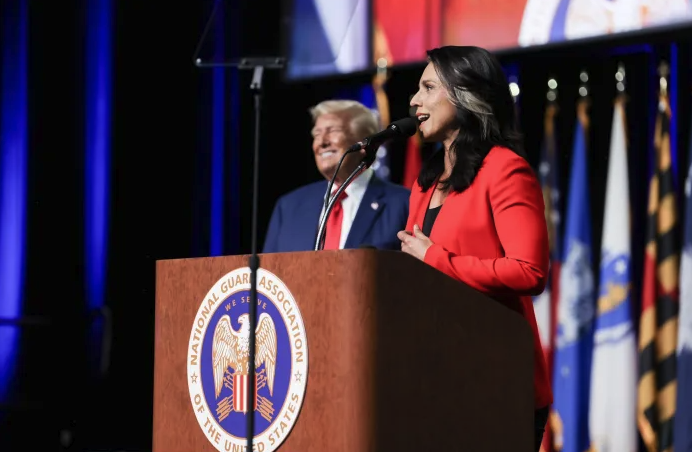
Gabbard has a history of praising dictators and trashing the U.S. intelligence community
Donald Trump’s nomination of Tulsi Gabbard to lead the U.S. intelligence community has caused alarm, with nearly 100 national security officials penning an open letter to Senators John Thune and Chuck Schumer asking for closed door hearings for senators to receive briefings on Trump’s controversial pick.
If appointed to the office of Director of National Intelligence, Gabbard would oversee 18 agencies, including the CIA, FBI, and NSA, and would have tremendous influence interpreting and relaying the highest level of classified material to the president.
The letter urges Thune and Schumer, the new Senate Majority and Minority Leaders respectively, to allow senators to review “all information available to the U.S. government” on Gabbard prior to holding her confirmation vote. The letter cites Gabbard’s “sympathy for dictators like Vladimir Putin and Assad” and raises questions about her “judgement and fitness.”
“Several of Ms. Gabbard’s past actions call into question her ability to deliver unbiased intelligence briefings to the President, Congress, and to the entire national security apparatus,” the letter reads. “Following her trip to Syria, for example, Ms. Gabbard aligned herself with Russian and Syrian officials.”
“She publicly cast doubt on U.S. intelligence reports and overwhelming public reporting that Assad carried out chemical weapons attacks against civilians, giving credence to a debunked conspiracy theory that the attack was staged by agents of the United Kingdom.” Gabbard once said that the Syrian dictator was “not the enemy.”
“As Director of National Intelligence, Ms. Gabbard would be entrusted with…the identification and protection of human sources working in the most dangerous settings around the world to defend our national security, and the protection of our most sensitive sources and methods of gathering intelligence.”
The letter concludes by asking the senate to hold closed door hearings to make all information on Gabbard available to senators so they may fully and properly engage in their advise and consent function of approving presidential nominees to key positions in the government.
It is signed by nearly 100 former ambassadors, retired high ranking members of the military, and state department officials.
-
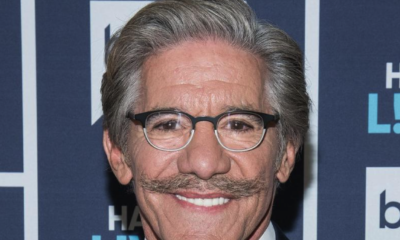
 News11 months ago
News11 months agoGeraldo Rivera Slaps Trump Supporters With A Reality Check After Biden’s Pardon
-
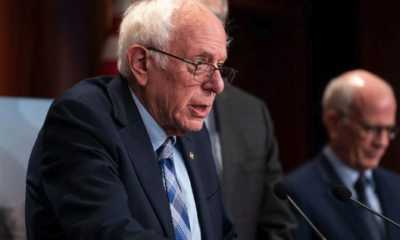
 News11 months ago
News11 months agoBernie Sanders Flips The Script And Praises Trump Picks
-

 Uncategorized11 months ago
Uncategorized11 months agoNaked RFK Jr. Makes Cameo On Wife Cheryl Hines’ Social Media
-

 News11 months ago
News11 months agoPhoto of person of interest with the mask down was the “money shot,” police commissioner says
-
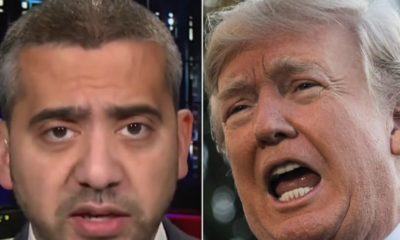
 News11 months ago
News11 months ago‘Banana Republic Stuff’: Mehdi Hasan Nails GOP Hypocrisy Over Trump’s Latest Move
-
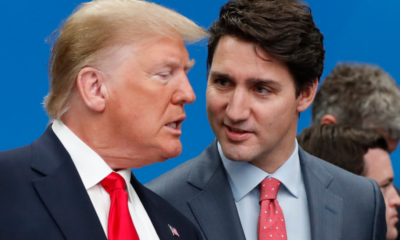
 News11 months ago
News11 months agoBREAKING: Canada just stunned Trump with brutal news after holding an “emergency meeting.” This WON’T end well for Trump…
-
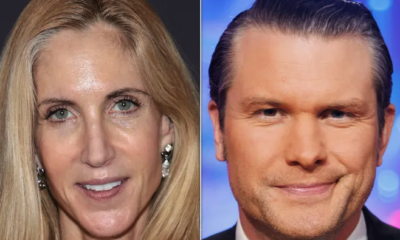
 News11 months ago
News11 months agoAnn Coulter Slams Controversial Trump Cabinet Nominee As ‘Sleazy’ Serial Adulterer
-
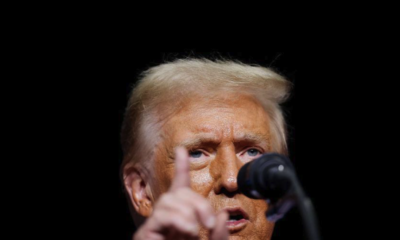
 News11 months ago
News11 months agoTrump Is Using “Unitary Executive” Theory in His Bid to Amass Supreme Power






